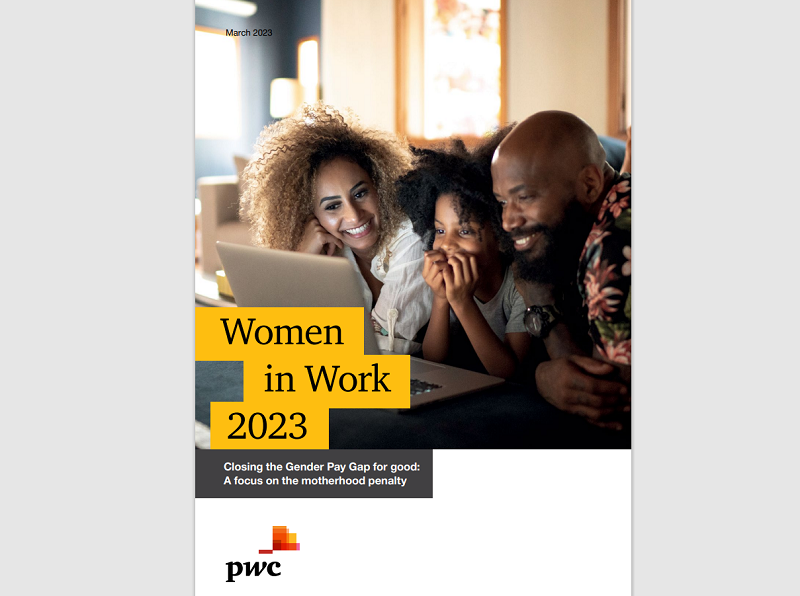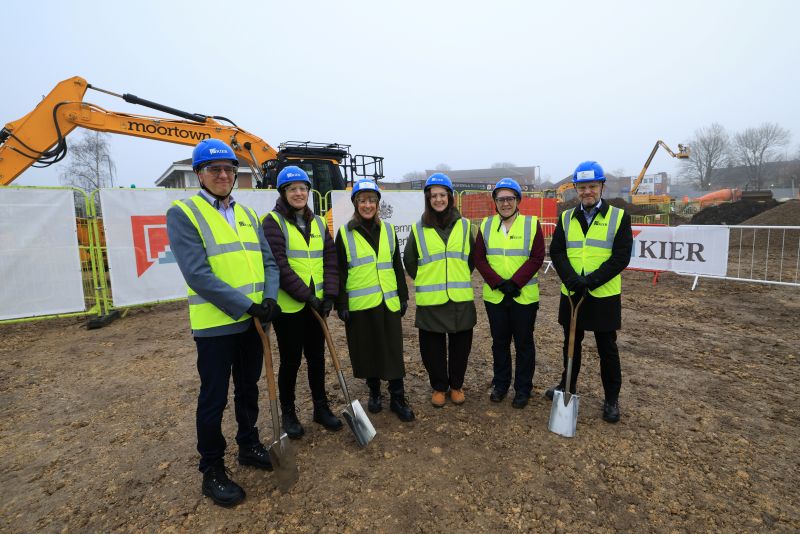The UK has recorded an absolute decline in women’s employment outcomes in 2021, seeing its relative international ranking fall five places, from 9th to 14th, according to PwC’s annual index of OECD countries.
The UK saw a significant widening of the gender pay gap by 2.4 percentage points to 14.4% in 2021 - four times the average increase across the OECD as a whole.
Combined with a slight fall in the female labour force participation rate, the UK’s absolute index score declined by two points in 2021, and led to a relative fall to 14th in OECD rankings compared to 2020.
While the UK remains the leading economy across G7 peers in 2021 at 69 points on the Index, the gap between the UK and Canada in second place, has also narrowed to just two index points.

Since the COVID-19 pandemic, the UK’s progress towards gender pay parity has been in reverse, and the UK female labour force participation rate fell 0.4 percentage points between 2020 and 2021, during a time of labour market recovery across the OECD. The rising costs of childcare threaten to make these results even worse, with more women being priced out of work altogether.
Childcare and the cost of living crisis:
The report highlights childcare affordability issues for families in the UK. In 2021, childcare costs relative to average income were one of the highest across OECD countries. Net childcare costs represented almost a third of the income of a family on the average UK wage. This compares to as little as 1% of income in Germany.
Since 2015, childcare costs in the UK have risen dramatically, while income growth has slowed. Average nursery costs per week rose by more than 20% between 2015 and 2022, while average weekly earnings rose by 14% (both in nominal terms).
Upcoming research from PwC* shows that an increase in the number of government-funded free childcare hours could generate a significant increase in the size of the labour force.
Larice Stielow, senior economist at PwC, says: “An 18 year old woman entering the workforce today will not see pay equality in her working lifetime. At the rate the gender pay gap is closing, it will take more than 50 years to reach gender pay parity. If the rebound from the pandemic has taught us anything, it is that we can’t rely on economic growth alone to produce gender equality - unless we want to wait another 50 years or more.
“The motherhood penalty is now the most significant driver of the gender pay gap and, in the UK, women are being hit even harder by the rising cost of living and increasing cost of childcare. With this and the gap in free childcare provision between ages 1 and 3, more women are being priced out of work. For many it is more affordable to leave work than remain in employment and pay for childcare, especially for families at lower income levels.”
The role of parental leave policies in eliminating the motherhood penalty:
While affordable childcare could help more women back into the workforce, in order to tackle the motherhood penalty at its root, the report explores solutions that could help to redistribute childcare more equally between women and men. This would assist in shifting societal attitudes about gender roles. While the UK currently offers a statutory shared parental leave scheme, take up by fathers is low (estimated 2-8%), mainly due to affordability issues, with payment to fathers only at the statutory level (capped at £156.66 per week, among the lowest in Europe).
The analysis suggests that, as a result of fathers taking more paternity leave, an additional 720,000 women in the UK could remain in full-time employment (over a 20 year analysis period), thus improving the UK’s overall ranking on the Index. Moreover, it estimates that the incidence of postpartum depression would fall - with an estimated 230,000 mothers and 240,000 fathers no longer suffering over the analysis period, which could save the NHS around £1.4 billion.
The benefits are not limited to parents - as a result of fathers spending more time with their children in their early years, around 66,000 children every year (10% of births) could attain better educational outcomes - scoring one grade higher in either Mathematics or English at GCSE once they reach high school age. This is also estimated to lead to an increase in their lifetime earnings of £330m.
Zlatina Loudjeva, Partner in PwC’s International Development team, said: “Rather than post-pandemic recovery for women, we’re seeing the opposite when it comes to closing the gender pay gap. With both a reversal in the UK’s progress on the index, and a widening of the gender pay gap, it’s clear that it was not a COVID linked issue alone and therefore, ‘business as usual’ simply won’t cut it. This is a question of equity but also a pertinent economic issue as the UK faces labour shortages. There is also a business cost of talent retention.
“We can no longer talk about the impact of COVID-19, it is clear that the cost of childcare in the UK and attitudes towards childcare need urgent focus and action, with government and business to work together to help mitigate the confluence of shocks that have occurred over the last few years so that women are not priced out of the workforce.
“There is no panacea, nor a one size fits all policy, that will solve the problems for women at work today. We should consider enhanced parental leave policies and more flexible working so that all parents can balance work and caring responsibilities, alongside tackling the cost of childcare, to help create a more equitable and prosperous society for all. The index shows that this is doable and a number of OECD economies are leading the way through successful interventions.”
The Index: how the UK regions fare
Northern Ireland ranks #1 amongst the countries and regions in the UK, overtaking the South West which has been the top-performing region for three years consecutively up until this year. The South West now drops into second place, while Scotland remains third (unchanged from last year).
Northern Ireland boasts the smallest gender pay gap across the countries and regions (only 5%), and a higher female full-time employment rate than most (the third best across the UK at 64%). However, it has the lowest female labour force participation rate (70%) of all countries and regions in the UK.
Wales saw the largest decrease in terms of absolute Index score as well as the largest fall in rank between 2020 and 2021. Wales fell from 2nd place to 6th place. This was due to marginal deterioration seen across the majority of indicators.




















